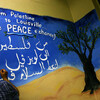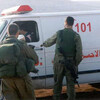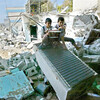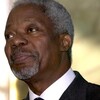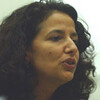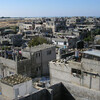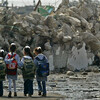
UNICEF: "Children must be safe during Gaza withdrawal"
12 August 2005
UNICEF today urged that children be kept out of harm’s way during the planned withdrawal from the Gaza Strip and parts of the northern West Bank. “Palestinian and Israeli children have suffered terribly over recent years as a result of this conflict,” UNICEF Executive Director Ann M. Veneman said Friday. “Next week’s events offer new hope for peace, and it’s critical to ensure the safety of the children in the region.” Along with the entire UN system, UNICEF expressed a hope that the withdrawal that is set to begin next week would occur smoothly and peacefully. If the disengagement does not proceed peacefully, children could be in particular danger, said Veneman, noting that children under 18 make up about half of the Palestinian population. Read more about UNICEF: "Children must be safe during Gaza withdrawal"
